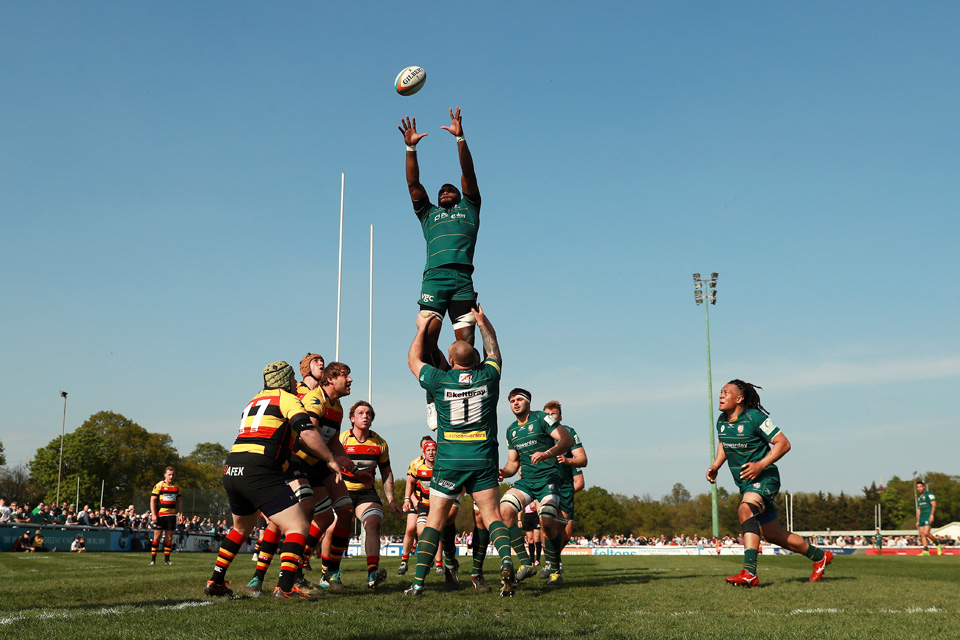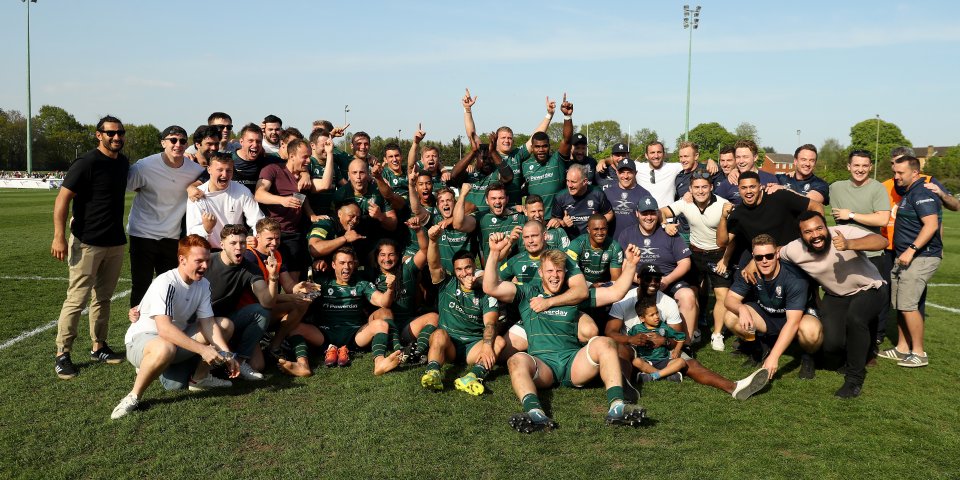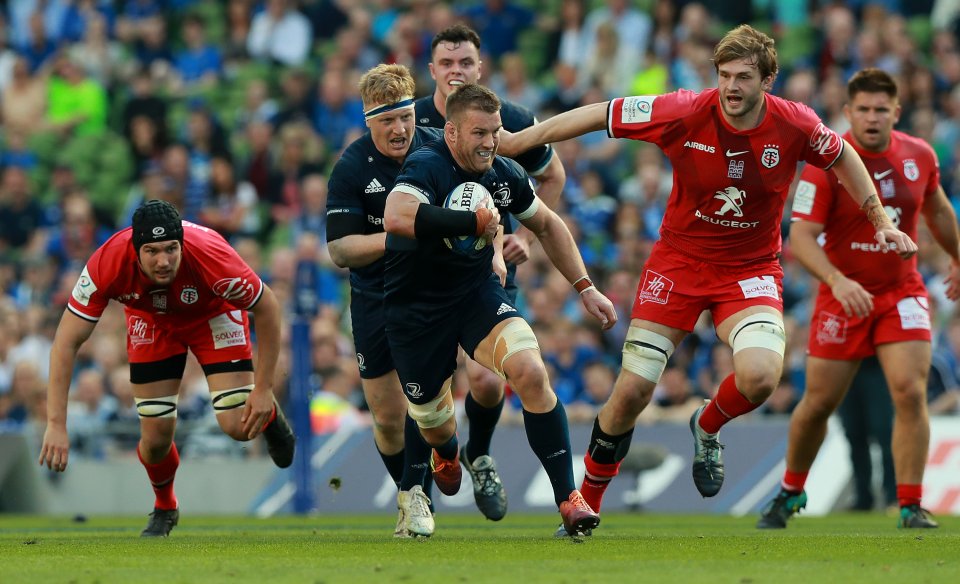London Irish will return from exile with move back to the capital as they bid to secure their Premiership status
After 20 years in exile, London Irish are returning to their roots.
The club bounced back into the Premiership at the first time of asking at the weekend with a 46-7 Good Friday win against Richmond, and after a difficult few years they are looking to their past for inspiration as they build for the future.
“We’ve been called ‘the Not Nots’ for a long time: not in London, not Irish,” chief executive Brian Facer tells City A.M. “But now we are saying, ‘that’s not the case anymore’.”
Read more: Premiership relegation battle to go down to the wire, so why scrap it
Facer was brought in from Northampton Saints and given three tasks: move the club back to London from Reading, turn it into a sustainable business, and secure their Premiership status.
So far, all three are on course to be achieved. The club regained their top-flight position last week and now face the challenge of staying there ahead of the 2020 season, when they will move into a new stadium in the capital for the first time since the 1990s.

Irish beat Richmond 47-9 on Good Friday to confirm promotion to the Premiership
London calling
From next year, Irish will share English Football League side Brentford’s Community Stadium, bringing the club closer to their Hazelwood training ground and west London origins.
It’s a deal that has been in the pipeline for several years, but despite bumps along the way, including the need for Brentford to reduce the capacity of the stadium from 20,000 to 17,250, the move was confirmed in December.
“A massive amount of work had already been done before I came here,” says Facer, who joined the club in 2017. “I feel like the lucky one at the end of it, on the receiving end of the pass and managing to get the ball down.
“The view was always that we would return to our ancestral home in west London where a large amount of our supporters are, and probably lying dormant. Our players live in Sunbury and train in Hazelwood, and it’s sensible to have a stadium near them rather than 30 miles down the road.”
The higher population density in Brentford presents Irish with the chance to attract new and existing fans from an area of the capital where there is already an appetite for rugby, with the homes of both England and Harlequins situated just over the river in Twickenham.
But despite the allure of growing their support, there is equally a need to repay the loyal fans that have been accumulated in Berkshire.
“We are well aware that 20 years in Reading means we have an ardent fanbase there,” Facer says. “We want to repay your loyalty by giving you priority on where you sit, and if you can’t go every week then we want to give you a membership where you still get priority and can pick and chose the matches you want to go to. The one thing we don’t want to do is lose them as supporters.”

Irish regained promotion to the Premiership at the first time of asking this season (Source: Getty)
Restructuring
The move will benefit the club in the long run, though, and the increased sponsorship opportunities already apparent, says Facer, is testament to that, with the philosophy that turning the club into a sustainable business first will help to bring success on the pitch.
“We went about restructuring the rugby department, the commercial department. We are trying to get ourselves ready,” he explains. “We are back in London and in a shape that’s fit to start winning games and driving ourselves up the table.
“It has to be an organic process. If we evolve steadily, we will become a sustainable business, and in turn a sustainable rugby team that can start winning matches.”
The stadium is a crucial part of that project. They will retain all revenue from their matchdays in return for rent and expect to at least break even, something they are not necessarily doing at Reading FC’s Madejski Stadium.
The new ground, which will be accessible via Kew Bridge or Gunnersbury rail stations, also meets both the Premier League and Premiership Rugby’s standards, with facilities much improved on Brentford’s current 12,000-seater home, Griffin Park.
The deal has no fixed end date but contains clauses that mean the contract can be terminated if the relationship is no longer mutually beneficial, or for other “sensible” reasons, for example if Irish have the opportunity to build their own stadium.

Ireland's Sean O'Brien will move from Leinster after the Rugby World Cup (Source: Getty)
Irish roots
The Exiles are not just returning to London. They also want to embrace their Gaelic roots and have been gradually integrating more Irish personnel. Former Ireland head coach Declan Kidney arrived last year as director of rugby while Leinster’s Sean O’Brien is set to join after this autumn’s Rugby World Cup.
Coupled with other imminent new additions in Australia internationals Nick Phipps and Curtis Rona from the Waratahs, it’s a sign of a wider intent from Irish to compete in the Premiership.
“The fact we can generate those signings – with more announcements to come – shows we are going into it with real intent,” Facer says.
“The people we’ve brought in shows we are serious about coming back into the Premiership and not surviving – that’s a terrible thing to aim for – we want to thrive.
“If it takes four-and-a-half-to-five years to get to a point where we’ve won a couple of trophies, like the Premiership Cup and European Challenge Cup, then we should be competing for the top end of the competitions, getting into the top six and the Champions Cup, and then once there we should be pushing on that top four.”
Although Irish may wish to be looking up the table, the threat of relegation looks set to remain a reality, with proposals to ring-fence the competition looking likely to be rejected.
It’s a move that the Irish chief executive supports, although he is in favour of some changes that would, he says, improve the quality of Championship sides.
“I believe part of driving that would be a play off between bottom and top,” he explains. “The Championship winner has the right to play against the worst Premiership team and swap places with them if they’re good enough to do that.”
There has also been an £18m influx thanks to CVC Capital Partners’ investment, which saw £230m split among the Premiership’s 13 shareholder clubs, including Irish.
The additional income has come at just the right moment for the Exiles, but Facer insists it has had no bearing on their plans or ambitions; it merely “helps grease the wheels” of the transition.
Read more: Legal Q&A: Israel Folau, Rugby Australia and breach of contract
Irish will play out their final year at the Madejski in the Premiership and it will be imperative to avoid relegation ahead of the move.
After a turbulent few years, the Exiles have decided to go back to how it all began as they try to bring success and sustainability to one of England’s iconic rugby clubs.
“Bringing the craic back to London is important to us in terms of who we are and what we want to be,” Facer says. “If we can win a few trophies along the way, that will be the cherry on the cake.”